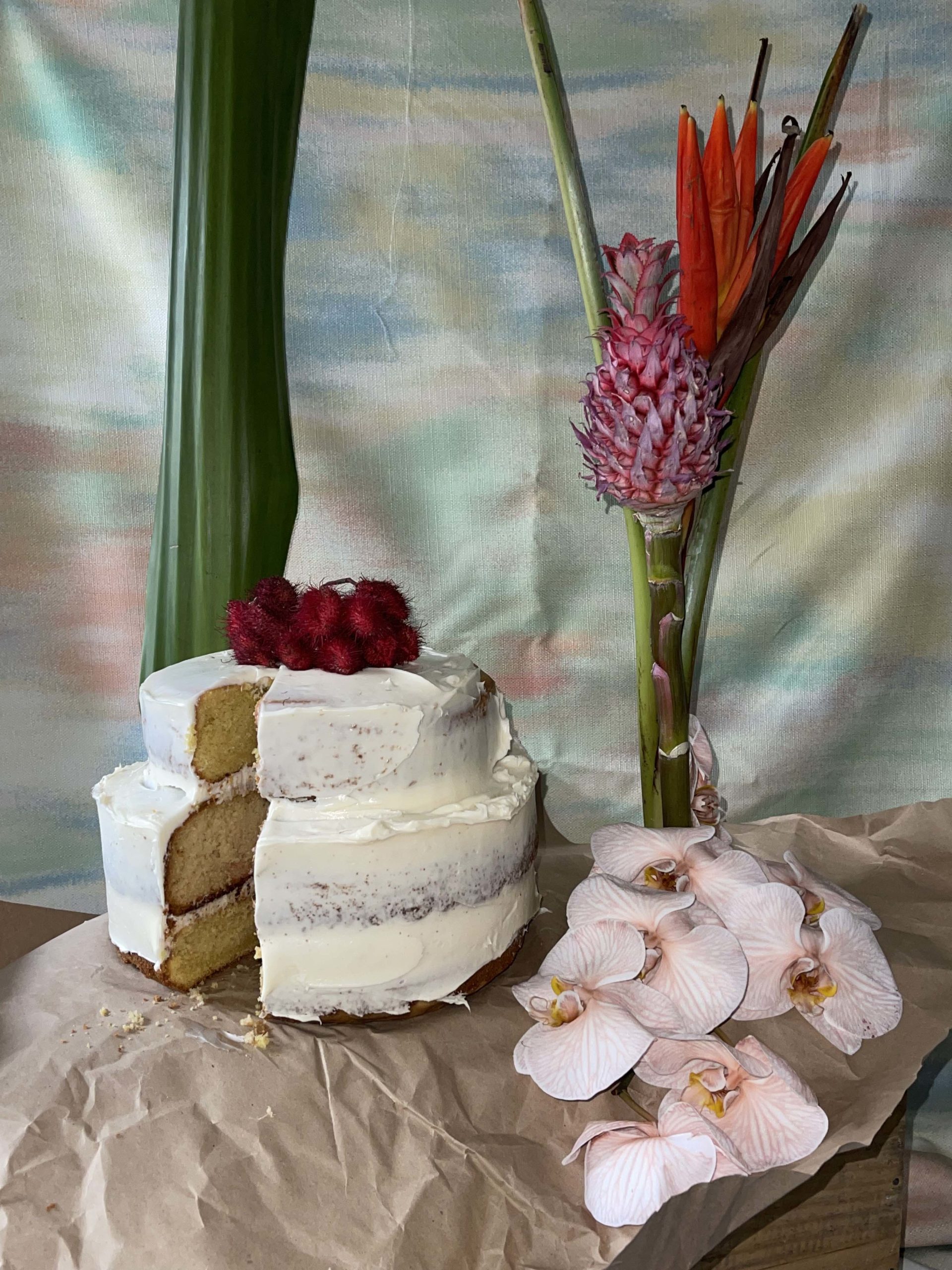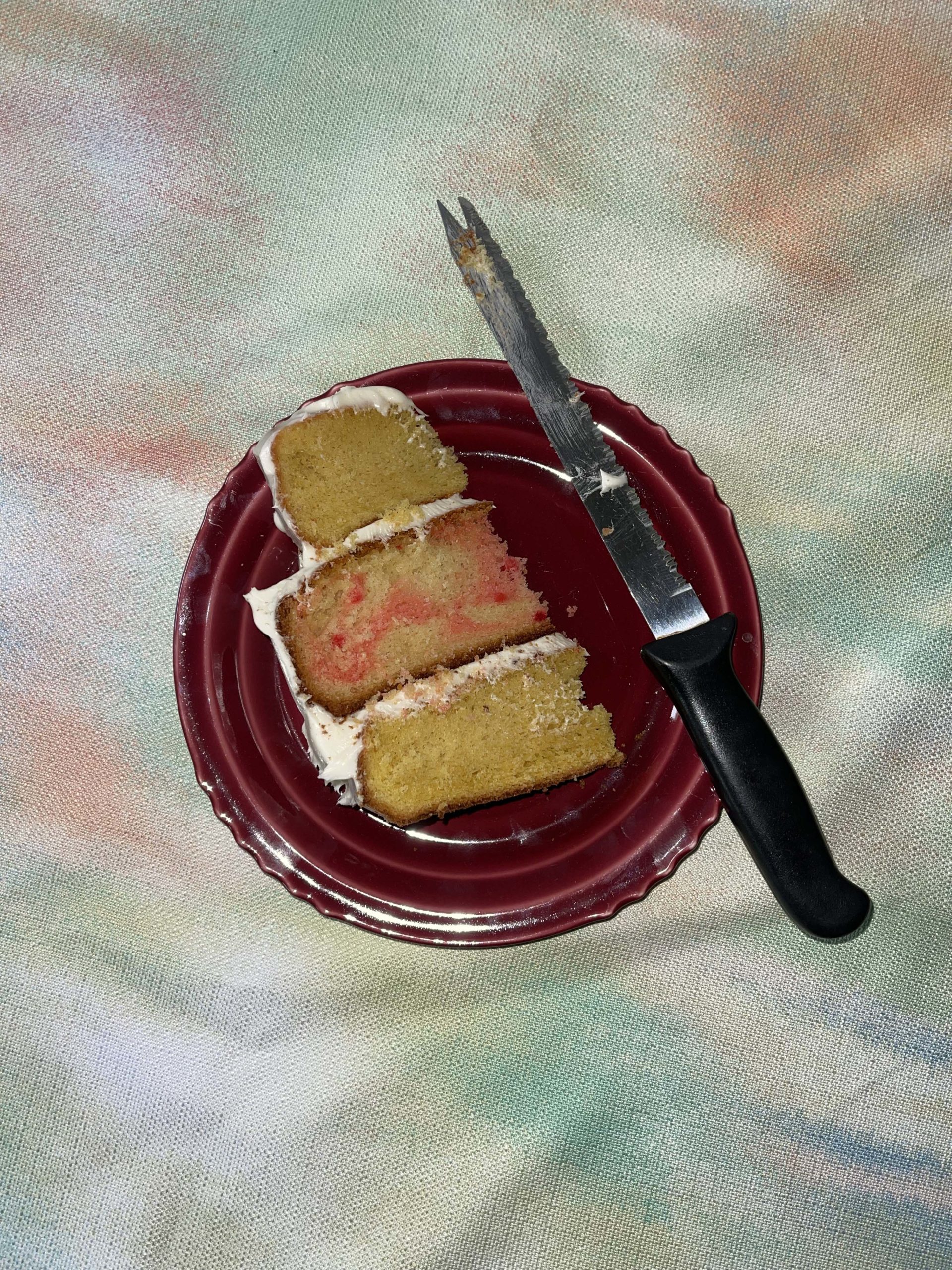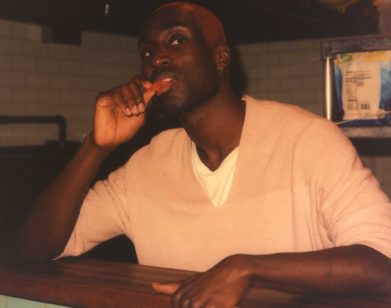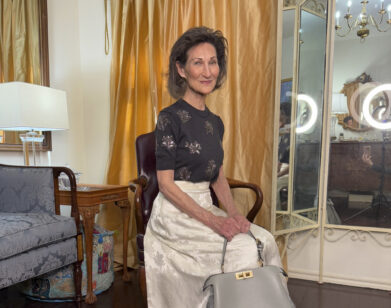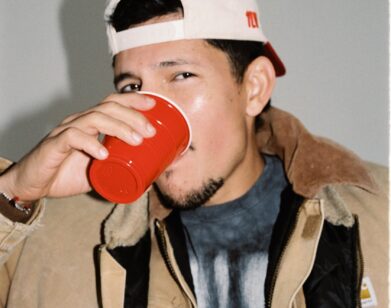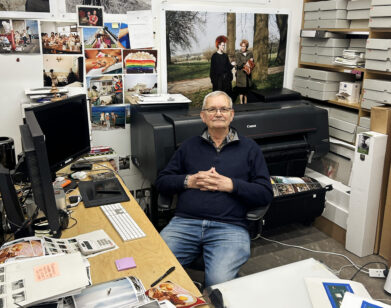food!
DeVonn Francis Cooks up Some Caribbean Holiday Magic with His Mom
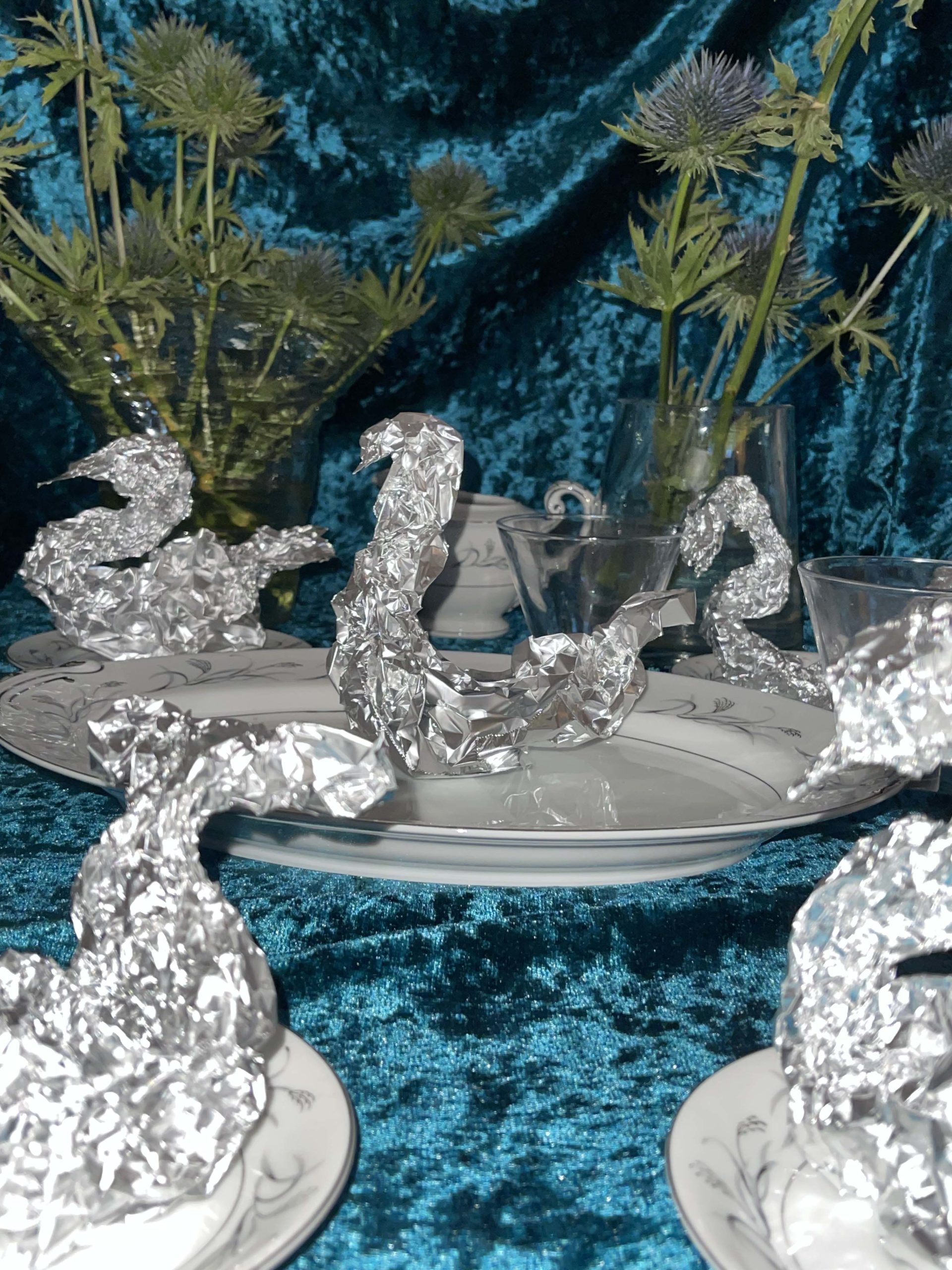
Photography by DeVonn Francis.
DeVonn Francis has always loved “the messiness of a party.” From the elaborate and colorful meals that he grew up sharing with his extended family of Jamaican, Jamaican American, and Jamaican British relatives, to the dinner parties he hosted in his cramped Bushwick apartment as a homesick college student, to the eclectic pop-up dining events he produces as the founder of the creative studio Yardy World, Francis’s love for mixing friends with family, and foreign with local flavors, is boundless. While the Brooklyn-based chef’s exposure to food culture came primarily from his parents—he cut his teeth in his mother’s kitchen and father’s jerk chicken restaurant—preparing intimate meals that invoke Caribbean culture is more than a family tradition, it’s a way of creating new forms of togetherness. “Entertaining is an underutilized gift,” he muses, “There’s something about bringing music and dance and conversation into a room that’s really important these days.” To ring in the holiday season, DeVonn and his mother spent a December afternoon preparing some of their favorite dishes and chatting about tweaking family recipes, and the role of entertaining in community building, and the glory of tinfoil.—MARA VEITCH
———
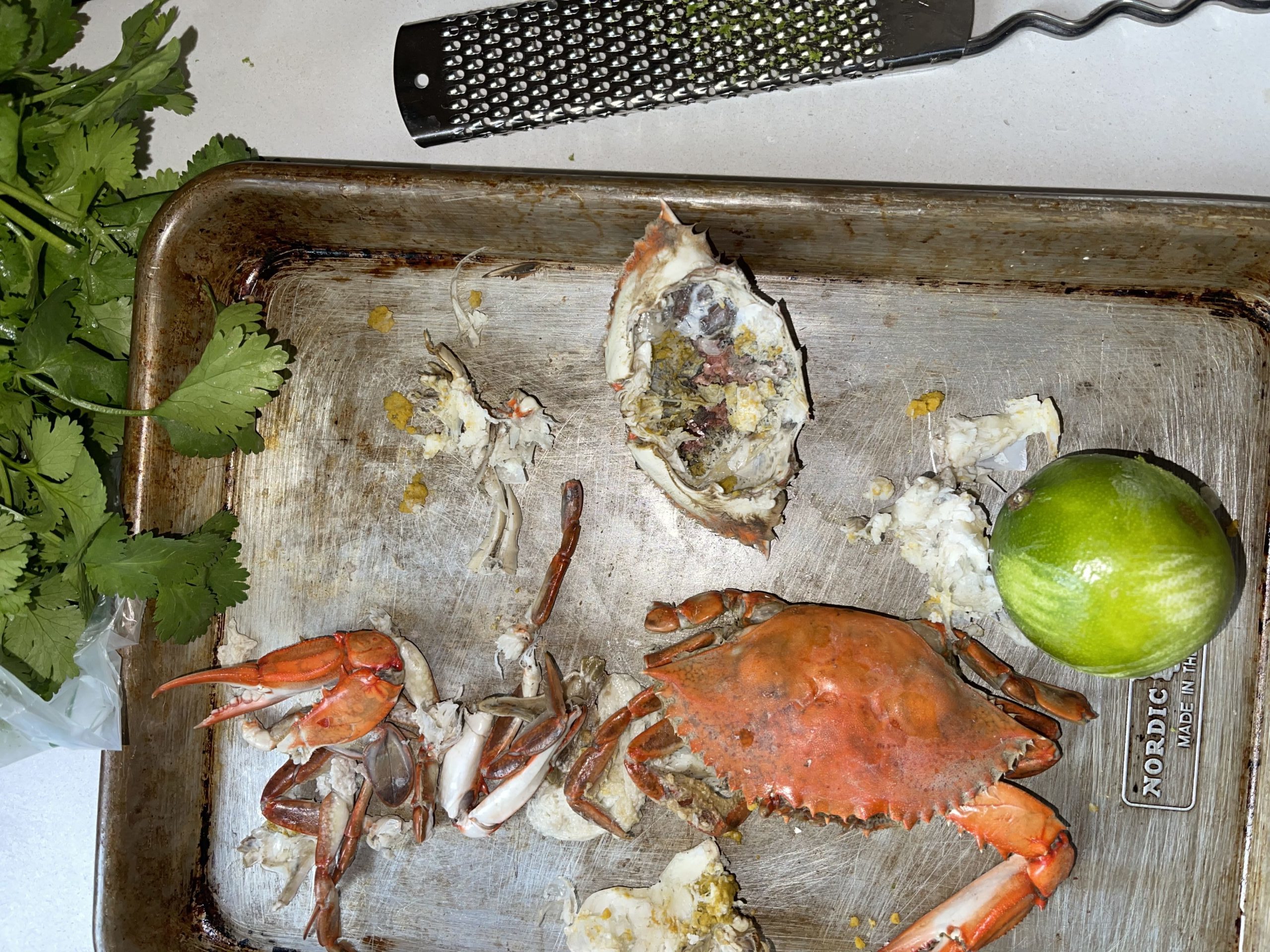
JENNIFER FRANCIS: This is your mom, of course, getting ready to interview you. How did food become your chosen way of connecting with people and expressing yourself?
DEVONN FRANCIS: It has to be because of our family and all the really extra parties that I remember from my childhood. Those were in some ways the only times that we got to see so many different sides of our family, a way of marking important moments, and a chance to just be joyful. If I can extend that to other people, who maybe don’t often get that experience, then I want to share it. That makes a lot of sense to me. I think about food as something that you must share. I also love the messiness of a party. It’s really fun to just see how people change in a crowd! There are so many characters in our family, and I think it’s a little bit like a performance.
JENNIFER FRANCIS: [Laughs] That’s for sure. That’s for sure. What do you think makes a true entertainer?
DEVONN FRANCIS: I believe that entertaining is about putting on a show. Maybe it’s because I studied performance in art school, or I’m attracted to really lavish flashy things sometimes. Entertaining an underutilized gift. There’s something about bringing life into a room. There’s something about music and dance and conversation that feels really important these days. A natural entertainer provides space and joy, and gives other people the chance to feel safe and comforted.
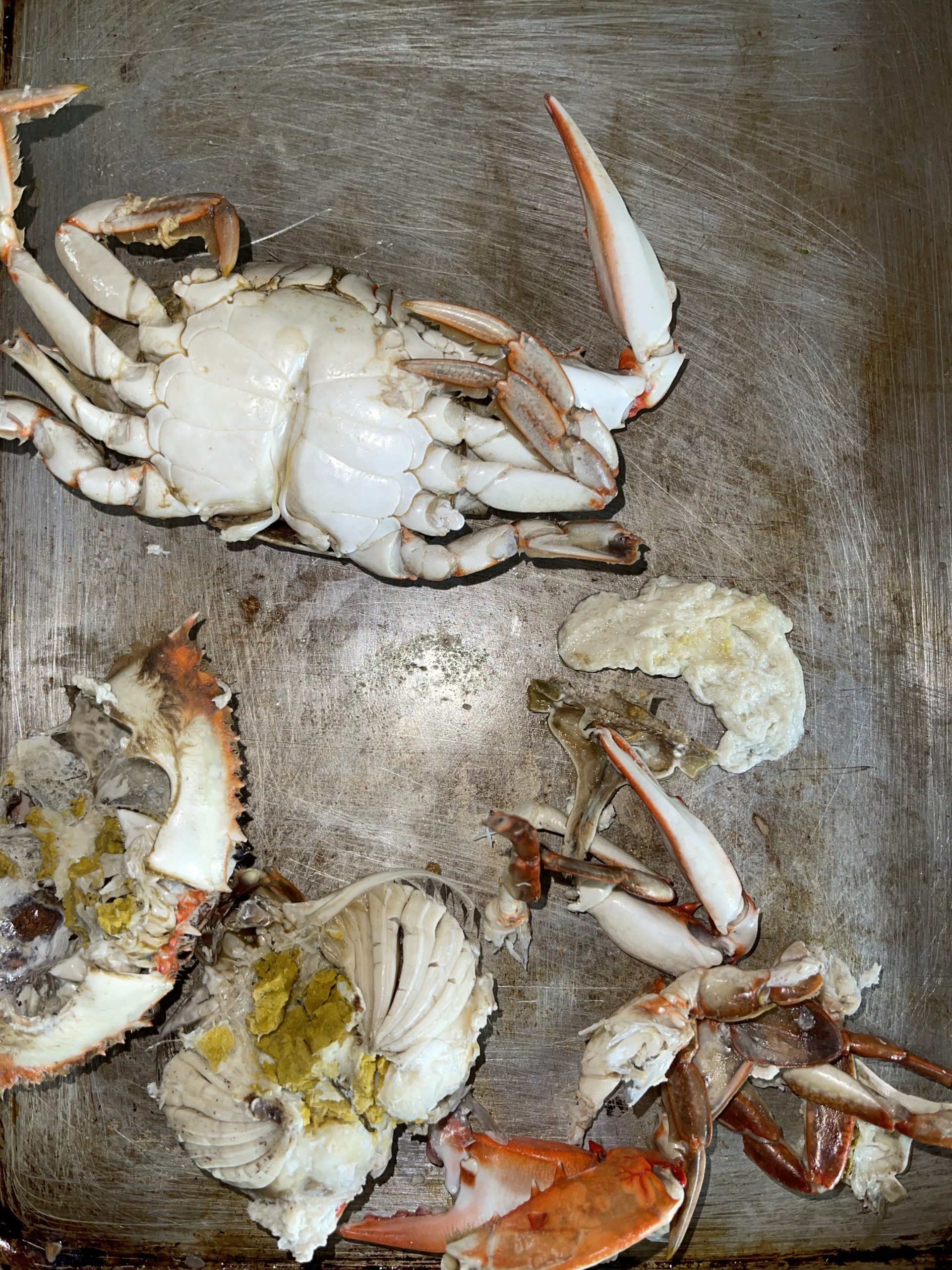
JENNIFER FRANCIS:I agree with that. What was the first meal you made that helped you realize, “Okay, I can make a career from doing this”?
DEVONN FRANCIS: It happened in multiple waves. The first time I ever had a dinner party, it was in my cramped, dingy apartment in Bushwick. I invited people over just because I was starting college and living alone in New York away from my family for the first time. Cooking was something that I had always done with my family, and I wanted to share. My guests were so encouraging, they told me I should be charging money.
JENNIFER FRANCIS: [Laughs] I remember that.
DEVONN FRANCIS: I mean, those grocery bills are not going to pay themselves! From there, I was invited by a friend to cook for a gallery event. That went well, and then the director of the organization asked if I’d like to host a dinner at her house. I was really nervous, but it also felt really natural: I was getting to do something that I love, and making money from it. It didn’t feel like I was working.
JENNIFER FRANCIS: That was a turning point.
DEVONN FRANCIS: I know. I thought I was going to be an artist selling paintings for a living, but I realized that I cared about people in ways that painting didn’t facilitate. But art school allowed me to see cooking as more than simply making food—I learned to play with lights and color, and create these sculptural moments. Cooking is a performance, and the table can be a theater. People are experiencing it together, but they’re not just watching, they’re causing the moment to happen. And that felt like something that was missing in my experience of New York. Do you remember the first Yardy World party that you came to?
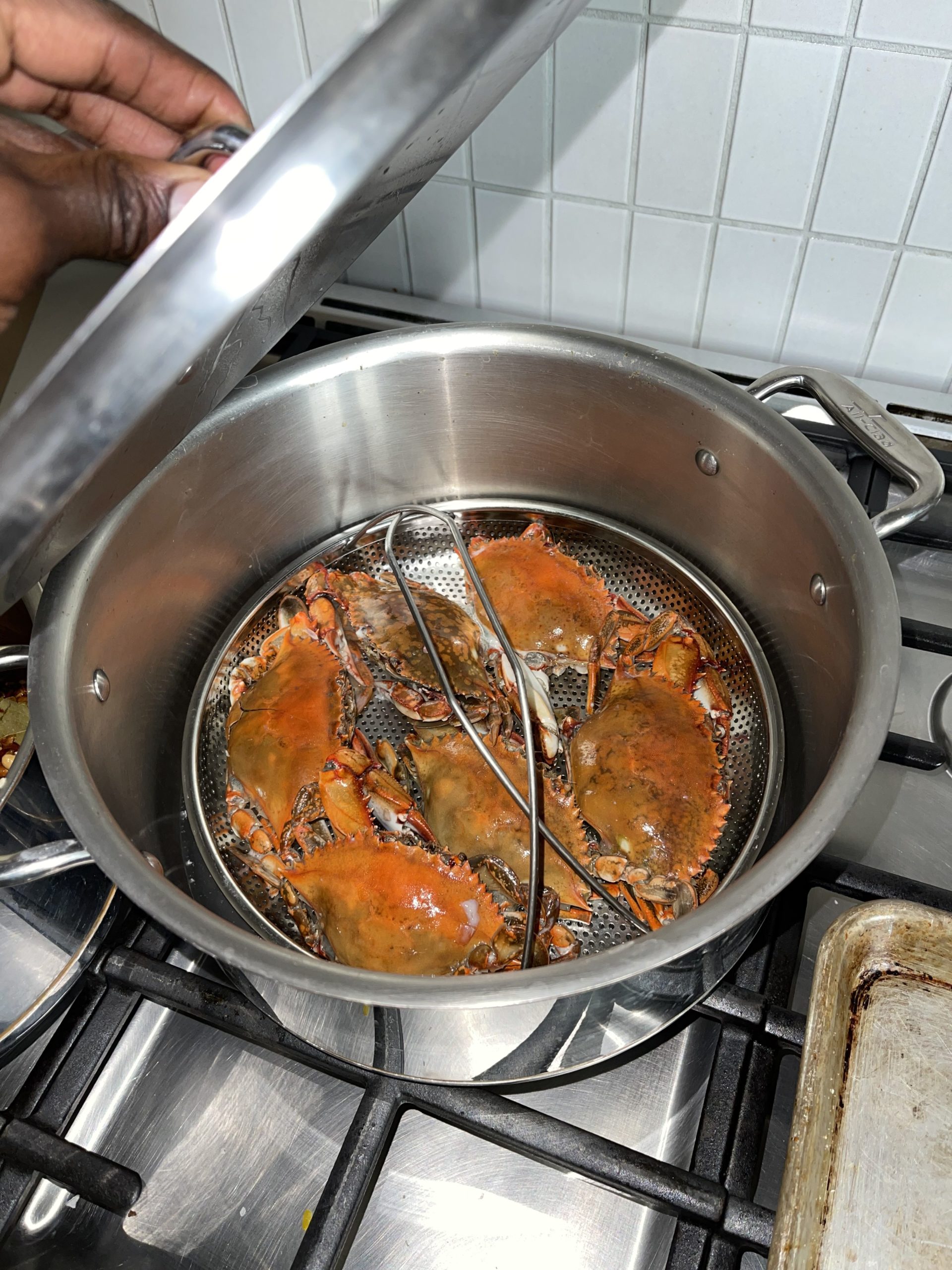
JENNIFER FRANCIS: At the Saipua flower shop! My mom came, and I could see how proud she looked, admiring the candles and flowers, and watching all these people enjoying the food. I’ll never forget that.
DEVONN FRANCIS: It was the first one ever. I went all the way down to Sheepshead Bay, because I found a cheap lumberyard there, and I wanted to put the goat belly on logs and light them on fire. I wanted it to smell like a campfire.
JENNIFER FRANCIS: You are ridiculous. I talk to you just about every day, and I can’t barely keep up with everything that you do. How do you feel about the work you do?
DEVONN FRANCIS: I feel so many different ways about it. I think that a lot of this industry is about keeping up, and when you’re asked to meet demand, the challenge is to make sure you’re still finding value in what you’re doing. The whole reason I started Yardy World was to build equity and resources to share with my Black, brown, Caribbean and queer communities. People who maybe don’t understand what it feels like to be a first generation Jamaican American have a chance to participate in this experience. That inclusion wasn’t something that I saw in the food industry. It was important to focus not just on the food, but also on the cultural elements that make the Black and Caribbean diaspora so fantastic and colorful.
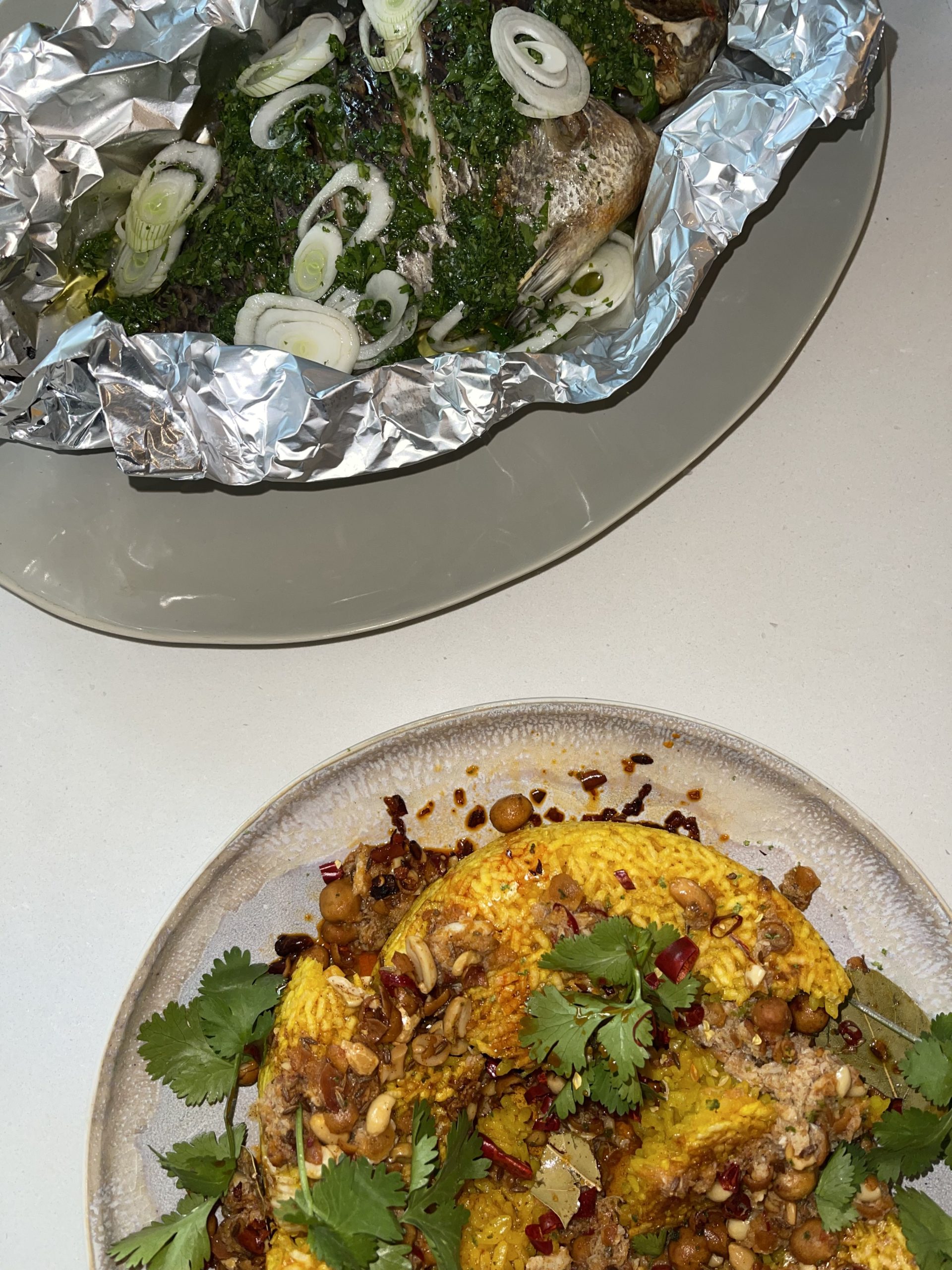
JENNIFER FRANCIS: You do a fantastic job. I’m not just saying that because you’re my child. I’ve been told over and over again how much people appreciate the work that you do. Your sister always says, “DeVonn is a happy cook.” When things go up in flames, you work it out so effortlessly. No chaos. I don’t know how you do that. I can’t say you get that gene from me.
DEVONN FRANCIS: How did you feel about working with me on this meal?
JENNIFER FRANCIS: It was such fun. I enjoyed going to the flower market and being surrounded by those colors and textures first thing in the morning. I was like a kid in the candy store. I always enjoy picking out fabrics and place settings for the table, but getting to do it with you, that was so special. Even though you’re a bit of a taskmaster.
[Both laugh]
DEVONN FRANCIS: Can you tell the story about your dining room set?
JENNIFER FRANCIS: [Laughs] That was just so peculiar. When you were five years old, you liked to sit in the dining room. I would always leave the table set with the china and the flatware and crystal glass and flowers. You would just sit there at the table, all by yourself, mesmerized by who knows what. The glassware? The flowers? I don’t know. You just enjoyed the beauty that you were faced with, and you couldn’t tear yourself away.
DEVONN FRANCIS: No food on the table.
JENNIFER FRANCIS: None! It makes sense now, seeing who you turned out to be. We know what you were contemplating.
DEVONN FRANCIS: Did you think that I would grow up to be a chef?
JENNIFER FRANCIS: Never, never, never. I thought you were going to be a lawyer. You like to argue. [Both laugh] So, what’s your next project?
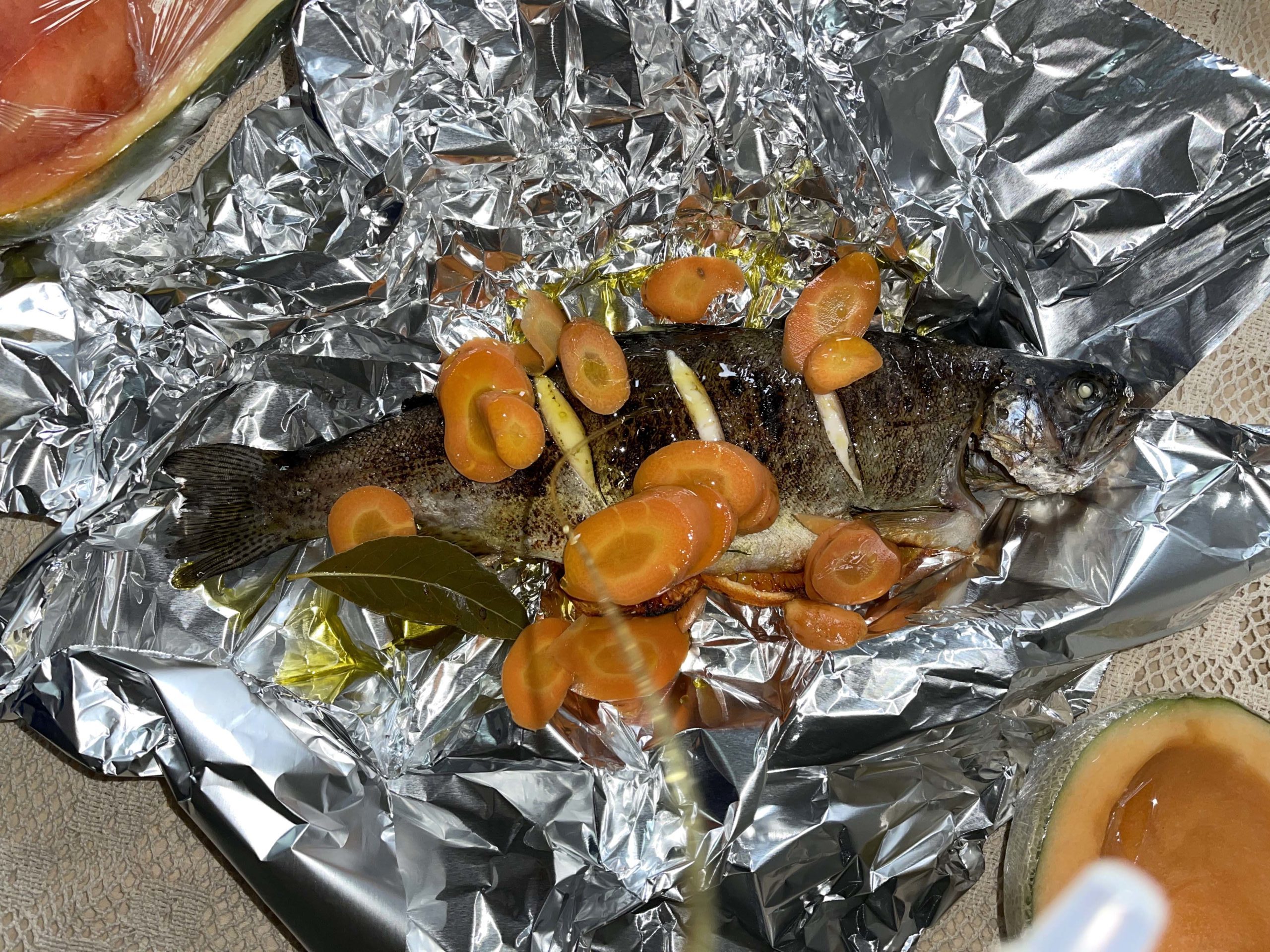
DEVONN FRANCIS: You mean our next project?
JENNIFER FRANCIS: Here we go! He’s got something to throw down!
DEVONN FRANCIS: Our next project is the cookbook that we’re working on. There aren’t a ton of resources that encapsulate the history of Black and Caribbean food while also celebrating the culture from a contemporary perspective. Well, none that resonate with how I perceive it, at least. Seeing contemporary Black chefs create recipes and write about food experiences and food history has given me the courage and the confidence that a book like that can exist, and that it can be intergenerational, and that it can include family stories. Knowing that your name will be on it is important to me, because so much of what I do comes from cooking with you and making food memories with you. Recipes are something that people can rally around, because it’s an art form we encounter on a daily basis. I’m excited to make something with you.
JENNIFER FRANCIS: It’s so excited to work on this with you. Let’s talk about food! How have our recipes changed over time?
DEVONN FRANCIS: So many different cultures make Jamaican food what it is—Indian, Spanish, Chinese, Taino. When we work on these recipes, we ask ourselves, where would this dish fit into a person’s life today? How would I add my own perspective to them? As much as I love traditions, I think it’s important to recognize that we live in a world of constant change. I love the way that grandma cooks crab, but I have to think about how I can cook this dish outside of the Caribbean, and how it changes when it arrives in a new place or a new time. How do immigration and technology reframe our relationship to what we’re eating? I love to think about how a dish changes when it arrives in a new place or a new time.
JENNIFER FRANCIS: We add our own twists. Like the goat that you made for thanksgiving—I was blown away by it! I showed you how to make it at first, but I’ve never had it like that before. Now, I want to make it your way.
DEVONN FRANCIS: I think my favorite dish that we made this time was the fish wrapped in tinfoil with pickled carrots. It makes me think of going up to Grandma’s house in Jamaica on Red Hill, and watching people wrap corn in tin foil and cook it on the side of the mountain. That’s just like such a strong memory for me, because it was the first moment that I realized that cooking happens everywhere. A kitchen is a space you make, it’s not necessarily a room in a house. I think this is a resourceful dish.
JENNIFER FRANCIS: It makes me think of the holidays.
DEVONN FRANCIS: You and dad made the holidays really fun. We’re kind of all over the place—we have cousins in London, in Canada, in New York—so it was nice to be able to think towards a moment when we could all be together in one place. You would always make the house beautiful, and you’d prepare enough food for an army of people.
JENNIFER FRANCIS: Creating those moments has always been so important for us. What is the best part for you? The family, the food, the decor?
DEVONN FRANCIS: Everyone coming together is probably the best part, and then the decor comes right after that. Oh, goodness, somehow the food comes last.

